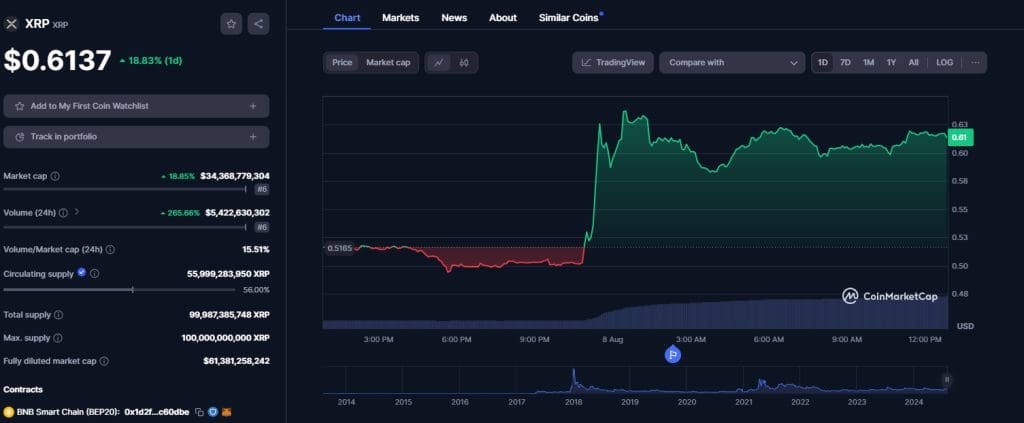Semler Scientific Embraces Bitcoin as Treasury Strategy
Marathon Digital Holdings, the largest Bitcoin miner globally, has significantly increased its Bitcoin holdings as part of a strategic ”full HODL” approach, demonstrating its commitment to Bitcoin as a treasury asset. Meanwhile, Semler Scientific has also ventured into Bitcoin investments, following the example of MicroStrategy, and aiming to leverage cryptocurrency for shareholder value. In a contrasting perspective, renowned author Nassim Taleb has criticized Bitcoin's effectiveness as a hedge against systemic financial risks, especially in light of the recent market downturn that saw a significant drop in cryptocurrency valuations.
Semler Scientific's Bitcoin Bet: A Journey from Medical Devices to Cryptocurrency
Over two years before the advent of Bitcoin, Dr. Herbert Semler, a distinguished figure who served as a flight surgeon during the Korean War and later led the cardiology department at a prominent Portland hospital, co-founded Semler Scientific (NASDAQ: SMLR) in 2007. Fast forward seventeen years, the medical device manufacturer has shifted its financial strategy dramatically by converting a significant portion of its cash holdings into Bitcoin, with plans to acquire even more in the near future.
Eric Semler, the company's chairman and son of Herbert Semler, shared insights into this strategic pivot. ”He was so excited,” Eric remarked, reflecting on his father's enthusiasm for the new investment direction. Drawing a parallel with his grandfather, Harry Semler, who had viewed gold as a premier investment, Eric noted that Herbert would have appreciated Bitcoin as the ”new gold.”
Although Herbert Semler, now nearing 96, has retired from the company, and Eric had been a passive investor in Semler Scientific until April 2023, his involvement deepened due to emerging governance issues. This shift led to a significant transformation in the company’s financial strategy, most notably its decision to embrace Bitcoin as a treasury asset, announced in May 2023.
Semler Scientific’s adoption of Bitcoin is heavily influenced by MicroStrategy (NASDAQ: MSTR), a business intelligence firm that has famously allocated a substantial portion of its reserves to Bitcoin under CEO Michael Saylor's leadership. “Michael Saylor’s drumbeat about zombie companies with a lot of cash that were small and weren’t getting attention in the stock market kind of resonated with all of us on the board,” Eric explained.
Following MicroStrategy’s footsteps, Semler Scientific studied the benefits of such a strategy and decided to pursue it. The company has acquired 929 bitcoins, totaling $63 million, at an average price just under $68,000 per Bitcoin. Despite a recent price drop to around $57,000, reducing the holdings' value by approximately $10 million, the board remains steadfast in their conviction.
“When you believe in something so strongly and when you have conviction, you have to be willing to step up and buy things when they go against you,” Eric said. ”The ultimate test of conviction is whether you will buy something that's down and that you bought 20% higher.”
Raising Capital for More Bitcoin
Taking another cue from MicroStrategy, Semler Scientific is looking to the capital markets to fund further Bitcoin purchases. In early June, the company filed a $150 million mixed shelf offering and is currently awaiting SEC approval. Although seasoned issuers like MicroStrategy typically receive quick approval, Semler Scientific, being smaller and new to this type of capital raise, is experiencing a longer wait.
Eric Semler's journey into Bitcoin began well before his company's adoption of the cryptocurrency. As a professional investor since 1998, he engaged with Bitcoin entrepreneurs early and started personal investments in 2016. His focus on future trends and identifying potential high-growth opportunities led him to Bitcoin.
“Bitcoin fits into that realm,” he said, noting that the cryptocurrency's resilience, particularly during the 2023 collapse of Silicon Valley Bank and other lenders providing services to cryptocurrency firms, solidified his confidence in Bitcoin’s longevity. “Bitcoin’s durability through that crisis impressed me and had an impact on my thinking about it.”
The decision to use Bitcoin as a treasury reserve was rooted in a strategic business analysis. With ample free cash on its balance sheet and a consistent generation of positive cash flow, Semler Scientific sought ways to enhance shareholder value – a goal that was not fully recognized by Wall Street.
“It was the result of a lot of soul searching about how to provide shareholder value,” Eric explained.
Marathon Digital Holdings Increases Bitcoin Holdings and Production Amid Strategic HODL Approach
Marathon Digital Holdings, the world’s largest Bitcoin miner, has continued to solidify its position in the cryptocurrency market by significantly increasing its Bitcoin holdings as part of its ”full HODL” strategy. This steadfast approach shows Marathon’s commitment to treating Bitcoin as a strategic treasury reserve asset, signaling a bullish outlook for the future of the leading cryptocurrency.
On Aug. 6, Marathon Digital announced an increase of 2,282 Bitcoin (BTC) to its holdings, bringing the total to 20,818 BTC. With the current valuation of Bitcoin around $56,807, this addition is worth over $124 million, pushing the company’s total Bitcoin holdings to approximately $1.14 billion.
Marathon's decision to adopt a ”full HODL” strategy, which stands for ”hold on for dear life” in crypto parlance, indicates a long-term commitment to Bitcoin. This approach is seen as a positive indicator for Bitcoin's market potential, particularly given the significant influence that large holding entities, often referred to as whales, have on the cryptocurrency's price.
Fred Thiel, CEO and Chairman of Marathon Digital, emphasized the company's strategic intent in a July 25 post on X (formerly Twitter), stating, ”Today Marathon is proud to announce that to strengthen our strategy of holding Bitcoin as our strategic treasury reserve asset, we have over the past month purchased $100 million in BTC, and will now go full HODL.” This declaration came after the company acquired $100 million worth of Bitcoin in July, further reinforcing their strategic reserve approach.
Marathon’s unwavering stance on Bitcoin is particularly noteworthy given the impending 2024 Bitcoin halving, which will see a 50% reduction in block rewards. Such events typically place financial pressure on miners, often leading them to liquidate assets. However, Marathon’s decision to increase its holdings and maintain a no-sell policy even during these challenging times demonstrates its robust confidence in Bitcoin's long-term value.
In addition to bolstering its Bitcoin reserves, Marathon has also ramped up its production capabilities. The company reported a 17% increase in Bitcoin production for July, totaling 692 BTC, compared to the previous month.
Enhanced Production and Operational Efficiency
Marathon's operational efficiency has seen substantial improvements. According to Thiel, the company’s block wins have surged by 27% over the past month, while the average operational hash rate grew by 5% to 27.5 EH/s (exahashes per second). Thiel remarked, ”BTC production last month rose 17% to 692 BTC compared to June, and our average operational hash rate grew 5% over the same period to 27.5 EH/s. We will continue to mine aggressively while the global hash rate comes offline due to a lower BTC price and use all the tools at our disposal related to mining economics for maximum production.”
These advancements in production and operational efficiency shine the spotlight on Marathon’s strategic investments in mining technology and infrastructure, positioning the company to capitalize on future market conditions.
Marathon’s robust financial health is evident in its substantial holdings. The firm’s combined Bitcoin and cash holdings now total $1.6 billion, reinforcing its capability to navigate market volatility and pursue strategic opportunities.
The company's commitment to not selling any Bitcoin during June further highlights its strategic HODL approach. By maintaining its Bitcoin reserves, Marathon is betting on the long-term appreciation of Bitcoin, aligning with the broader sentiment of many market analysts who view large-scale holding as a bullish signal for Bitcoin’s future.
Nassim Taleb Criticizes Bitcoin's Role as a Hedge Amid Market Downturn
In related news, on Aug. 6, renowned author and financial expert Nassim Taleb, best known for his book ”The Black Swan,” shared his critical perspective on Bitcoin's role as a hedge against financial turmoil. Speaking on CNBC's Squawk Box, Taleb addressed the recent $510-billion downturn in the cryptocurrency market that occurred on Aug. 5, bringing attention to Bitcoin's failure to serve as a reliable hedge against systemic risk.
“Bitcoin is proving once again that it’s not a hedge against your assets melting,” Taleb asserted, reiterating his skepticism about the cryptocurrency's purported role as a safeguard against financial instability. Taleb’s book ”The Black Swan” delves into the impact of rare and unpredictable events, which he argues Bitcoin is not equipped to withstand.
The abrupt market downturn on Aug. 5 saw a significant reduction in the total market capitalization of cryptocurrencies, wiping out $510 billion in value. The sell-off led to over 60% of the top 50 cryptocurrencies losing all their gains accumulated in 2024, according to data from CryptoQuant.
Traditional financial markets also experienced considerable losses during this period. The S&P 500, a key index of large-cap stocks in the United States, declined by more than 5%, while Japan’s Nikkei index saw a dramatic 12% plunge. However, Bitcoin's performance was notably worse, with the cryptocurrency dropping by approximately 18% in a single day, according to CoinMarketCap.
Taleb compared Bitcoin to high-price real estate in Manhattan, suggesting it behaves more like a speculative asset than a stable store of value. “Bitcoin performed worse than other assets because it is a speculative asset that seems to behave like high-price real estate in Manhattan,” he noted. Taleb contrasted Bitcoin with gold, highlighting gold's enduring value. “With a gold chain, if you put it on the ground for 10,000 years, it will still be gold,” he said, emphasizing gold's reliability as a store of value.
Bitcoin, sustained by a global decentralized network of miners estimated to include around 1 million individuals, has demonstrated resilience since its inception in 2009. Nevertheless, concerns about its long-term viability persist, especially considering its fixed supply of 21 million BTC and the impending reduction in mining rewards.
Triggering Factors and Broader Implications
The market crash on Aug. 5 was precipitated by the Bank of Japan’s interest rate hike on July 31, which caused a sharp increase in the yen's value in currency markets. This development significantly impacted foreign borrowers with yen-denominated debt, which totaled approximately $2 trillion just before the crash, according to a report from ING Bank.
The cryptocurrency market, particularly vulnerable to such shocks, was heavily affected due to its reliance on leveraged trades. According to CoinGlass, the crypto market had borrowed nearly $40 billion to finance risky leveraged positions, exacerbating the impact of the downturn.
Taleb's criticism of Bitcoin comes amid a broader debate about the role of cryptocurrencies in the global financial system. Proponents argue that Bitcoin offers a decentralized and secure alternative to traditional financial systems, while critics, like Taleb, highlight its volatility and speculative nature as significant drawbacks.
The performance of other asset classes during the downturn adds further context to the discussion. While Bitcoin experienced a steep decline, traditional assets like the S&P 500 and the Nikkei also faced substantial losses, though to a lesser degree. This correlation between Bitcoin and traditional markets challenges the notion of Bitcoin as a non-correlated asset, supposedly offering a hedge against market instability.





